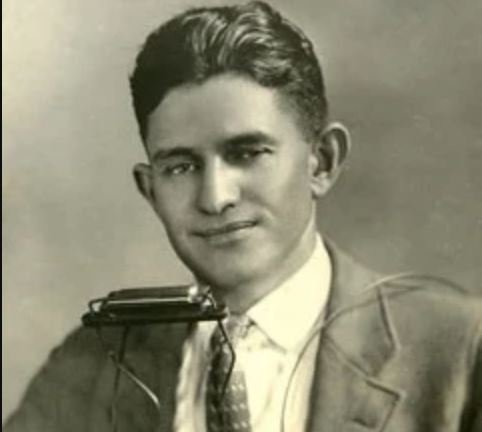Henry Whitter, born William Henry Whitter on April 6, 1892, in Grayson County, Virginia, emerged as a pioneering figure in the early country music scene.
His contributions to the genre, particularly as one of the first commercially recorded country musicians, have left a lasting legacy in American music history.
Early Life and Musical Beginnings
Whitter grew up in a musical environment, learning to play various instruments, including the guitar, fiddle, banjo, harmonica, and piano. His early exposure to music was shaped by listening to cylinder recordings, which inspired him to pursue a career as a musician.
Despite working in a cotton mill, known as the Fries Washington Mill, Whitter’s passion for music led him to record sessions intermittently from 1923 to 1926.
He said to have recorded his first session in March 1923 for Okeh Records, positioning himself as one of the earliest country singers to record commercially, just ahead of other notable artists like Fiddlin’ John Carson.
His initial recordings included “Wreck on the Southern Old 97,” which became a significant hit and helped establish his reputation in the industry.
Rise to Fame
Whitter’s breakthrough came with his 1923 version of “The Wreck of the Southern Old 97,” which was among the first recordings to gain widespread popularity in the country music genre.
This recording not only showcased his vocal talents but also his innovative use of a harmonica rack, allowing him to play both guitar and harmonica simultaneously.
This technique was relatively novel at the time and contributed to his unique sound.Throughout his career, Whitter collaborated with various musicians, most notably with fiddler G.B. Grayson.
Their partnership began in 1927 and produced some of the most celebrated recordings in the hillbilly music genre. Songs like “Going Down the Road Feeling Bad” and “The Wreck of the Southern Old 97” exemplified their musical synergy and showcased Whitter’s ability to blend storytelling with melody, a hallmark of country music.
Musical Style and Influence
Henry Whitter’s style was characterized by a blend of old-time music traditions with emerging country sounds. His recordings often featured heartfelt narratives, reflecting the struggles and experiences of rural life.
Although he was not considered a virtuoso musician, his enthusiasm for the genre and his ability to connect with audiences through his songs were significant factors in his success.
Whitter’s recordings from 1923 to 1930 laid the groundwork for future country artists, influencing the direction of the genre. His work with Grayson, particularly their collaborative recordings, is regarded as some of the best in the hillbilly music tradition.
Tragically, their partnership was cut short when Grayson died in an automobile accident in 1930, which deeply affected Whitter and led to a decline in his public performances thereafter.
Later Life and Legacy And Death
Following the death of G.B. Grayson, Whitter struggled to find his footing in the music industry. He continued to perform but never regained the prominence he had enjoyed during his earlier career.
He passed away on November 17, 1941, in Morganton, North Carolina, leaving behind a rich legacy in American music. Henry Whitter’s contributions to country music are recognized for their historical significance.
His recordings not only captured the essence of early 20th-century American life but also paved the way for future generations of country musicians.
Songs like “The Wreck of the Southern Old 97” and “Going Down the Road Feeling Bad” remain classics, reflecting the storytelling tradition that is central to country music.
Today, Whitter is celebrated as one of the foundational figures in the genre, and his influence can still be felt in the music of contemporary artists.
READ ALSO: Coming Round The Mountain Lyrics
Influence on Country Music
Henry Whitter’s impact on country music extends beyond his own recordings. He played a crucial role in popularizing the “hillbilly” sound during a time when the genre was still in its infancy.
His ability to convey emotion through his songs resonated with audiences and set a precedent for future country artists. Whitter’s storytelling style, combined with his distinctive vocal delivery, laid the groundwork for the narrative-driven songs that would become a hallmark of country music.
Whitter was also known for his innovative approach to instrumentation. His use of the harmonica rack allowed him to create a fuller sound, which was particularly appealing to listeners.
This technique influenced other musicians and contributed to the evolving sound of country music in the 1920s and 1930s. Furthermore, Whitter’s recordings often included elements of folk and blues, showcasing the diverse influences that shaped the early country genre.
Conclusion
Henry Whitter’s legacy as a pioneering figure in country music is undeniable. His innovative approach to songwriting and performance, combined with his ability to connect with audiences through heartfelt storytelling, solidified his place in the annals of American music history.
Songs like “The Wreck of the Southern Old 97” and “Going Down the Road Feeling Bad” continue to resonate with listeners today, serving as a testament to his enduring influence.
Although Whitter’s career was tragically cut short, his contributions to the genre paved the way for future artists and helped shape the sound of country music as we know it today.
As we celebrate the rich tapestry of country music, Henry Whitter’s name remains an essential part of that story, reminding us of the power of music to capture the human experience and connect generations.
His legacy serves as a reminder of the importance of preserving the roots of country music and honoring those who laid the groundwork for its evolution.

